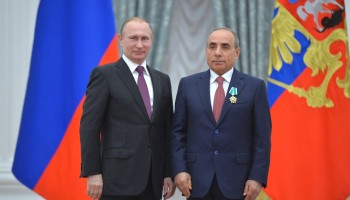Representatives from 15 countries, including Argentina, China, India, Indonesia, Italy, Romania, the UK and Ukraine, in addition to heads of prosecutors’ offices and anti-corruption agencies attended the conference. Mammadov also pointed out that Azerbaijan has nearly 230 NGOs that deal in some form with fighting corruption; he himself was recently elected vice-president of the International Association of Anti-Corruption Bodies, which brings together prosecutors and other officials from 140 countries. The country’s president, Ilham Aliyev, endorsed its parliament’s national anti-corruption strategy in July 2007.
Meanwhile, Azerbaijan’s anti-corruption department brought 69 officials to trial in 2007, said prosecutor-general Zakir Garalov, and currently has 28 more indictments ready to be returned.
These measures, however, may be paper tigers in a country that Transparency International ranked near the bottom in the region for corruption. TI’s 2007 Corruption Perception Index placed Azerbaijan in 13th place out of 15 countries in the region. Only Turkmenistan and Uzbekistan fared worse. The main culprit, say observers, is the country’s booming oil and gas industry. Reports often single out the State Oil Company of the Azerbaijani Republic (SOCAR), which is controlled by the family of President Aliyev. Lehigh University international relations professor Rajan Menon has also pointed out that 90 percent of oil and gas profits end up in the pockets of government officials, rather than benefitting the Azeri population as a whole, and that oil-dependent countries overlook the rigged elections and other political corruption.
Azerbaijan’s High-Profile Beneficiaries
The Azerbaijani Laundromat was a money-laundering scheme and slush fund used by Azerbaijani elites to disguise the origin of...





